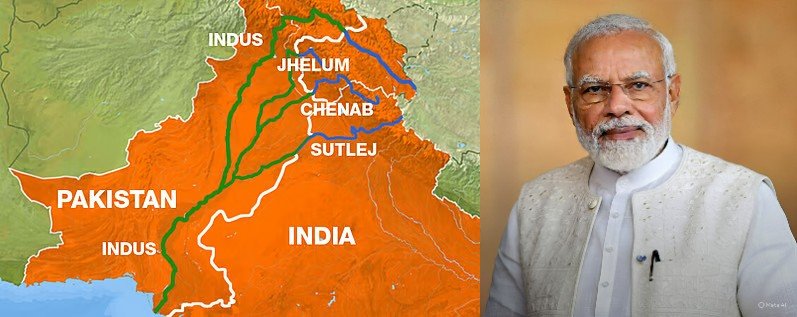Pakistan Requests India to Resume Indus Waters Treaty
Amid escalating rhetoric and war threats from its top leadership, Pakistan has officially urged India to resume the normal functioning of the Indus Waters Treaty (IWT). The appeal from Islamabad came just days after Pakistan’s military chief General Asim Munir warned of a possible nuclear conflict, and former foreign minister Bilawal Bhutto issued a war cry over India’s suspension of the decades-old water-sharing agreement.
Pakistan’s Foreign Office on Monday welcomed a recent interpretation by the Court of Arbitration related to the treaty and called for New Delhi to honour its commitments. The court’s August 8 ruling outlines specific criteria for India’s planned run-of-river hydropower projects on the Western Rivers — Chenab, Jhelum, and Indus — which Pakistan claims are vital for its water security.
Islamabad Cites Court Ruling to Support Its Claim
In an official statement posted on X (formerly Twitter), Pakistan’s Foreign Office said:
“We urge India to immediately resume the normal functioning of the Indus Waters Treaty and fulfil its treaty obligations wholly and faithfully.”
The statement added that the court had declared India must “let flow” the waters of the Western Rivers for Pakistan’s unrestricted use. While the treaty allows India certain exceptions for hydroelectric generation, Islamabad insists these projects must strictly follow the treaty’s technical parameters rather than India’s “ideal” or “best practices” approach.
India’s Position: Treaty in Abeyance After Terror Attack
India has consistently refused to recognise the proceedings at the Permanent Court of Arbitration, stating that Pakistan’s objections to project designs were baseless. Tensions escalated sharply after the April 22 Pahalgam terror attack in Jammu and Kashmir, which killed multiple Indian security personnel.
New Delhi accused Islamabad of supporting the terrorists behind the attack and announced a series of punitive measures, including placing the IWT in “abeyance” from May 2025. Under the 1960 World Bank-brokered treaty, India retains full rights over the waters of the Beas, Sutlej, and Ravi rivers, while Pakistan controls the Indus, Jhelum, and Chenab.
War Rhetoric from Pakistan’s Leadership
The water-sharing dispute has taken a dangerous turn with aggressive statements from Pakistan’s top leadership. On Monday, Bilawal Bhutto warned India of “serious consequences” if it did not restore the treaty, accusing Prime Minister Narendra Modi’s government of causing “great damage” to Pakistan.
“You people are strong enough for war to get back all six rivers,” Bhutto told Pakistanis, calling for unity and hinting at military action. He warned that if India persisted, Islamabad would have “no choice except to consider all options, including the possibility of war, to protect our national interests.”
A day earlier, General Asim Munir escalated tensions further by suggesting that Pakistan could resort to nuclear weapons if it faced an existential threat in a future conflict with India. He went as far as claiming that Pakistan’s retaliation could “take down half the world” in such a scenario.
Growing Regional and Global Concerns
The exchange of threats has raised alarms both regionally and internationally, with analysts warning that the water dispute could become a flashpoint in South Asia. Experts note that while the Indus Waters Treaty has survived multiple wars and diplomatic standoffs since 1960, the current combination of water scarcity, cross-border terrorism, and nuclear sabre-rattling presents an unprecedented challenge.
The World Bank, a guarantor of the treaty, has not yet issued a statement on the latest developments. However, diplomatic sources suggest that quiet backchannel talks may be underway to prevent further deterioration.
Outlook: Water, Security, and Diplomacy on Collision Course
For now, India remains firm in its stance, linking any restoration of the treaty’s functioning to Pakistan’s action against cross-border terrorism. Pakistan, meanwhile, is framing the issue as a matter of national survival and has elevated it to the highest levels of political and military discourse.
With both sides unwilling to back down, the Indus Waters Treaty — once hailed as a model of conflict resolution — faces perhaps its most serious test in over six decades. As the rhetoric intensifies, the risk of the water dispute spilling over into a broader confrontation remains a pressing concern for the region and the world.








